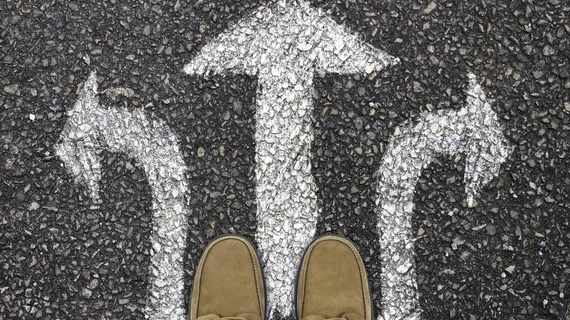Vaccine uncertainty discourages vaccine uptake—but disease uncertainty drives mixed behaviors
The more sure people feel that a COVID-19 vaccine will work as intended and won’t cause serious side effects or other harms, the more likely they are to accept a jab. Simple enough.
However, the inverse does not necessarily hold: Uncertainty over the disease itself—how likely individuals feel they are to contract COVID and, if they do, how sick they believe they may get—can propel people both toward and away from vaccination.
The paradox is explored in a mathematical modeling exercise published online Aug. 3 in Health Economics.
The piece is jointly authored by economist Christophe Courbage, PhD, of the University of Applied Sciences Western Switzerland and finance professor Richard Peter, PhD, of the University of Iowa.
The authors work with the von Neumann-Morgenstern utility function, which has been around since the 1940s and can be used to explain risk-averse, risk-neutral and risk-desiring behavior, according to Britannica.
Further, the von Neumann-Morgenstern theory shows that,
when a consumer is faced with a choice of items or outcomes subject to various levels of chance, the optimal decision will be the one that maximizes the expected value of the utility (i.e., satisfaction) derived from the choice made. Expected value is the sum of the products of the various utilities and their associated probabilities. The consumer is expected to be able to rank the items or outcomes in terms of preference, but the expected value will be conditioned by their probability of occurrence.”
Courbage and Peter apply this and other methodologies to focus their model on subjective beliefs that cause uncertainty around COVID and its vaccines.
Why subjective beliefs? Because people “may simply perceive uncertainty, especially when it comes to newly developed vaccines and new pandemics, for personal reasons including lack of information, limited trust in research, the government or the healthcare system, or due to a general sentiment of vaccine skepticism,” they explain.
At the same time, Courbage and Peter point out, their model accounts for objective uncertainty such as the lack of conclusive scientific evidence around aspects of the vaccine and the disease.
“Uncertain probabilities are commonly referred to as ambiguity, and recent evidence suggests that people are more pessimistic in medical decisions under ambiguity than under risk, especially for health losses,” the authors write.
Noting that millions of people around the world are still deciding whether or not to receive a COVID vaccination—whether first, second or booster—Courbage and Peter show that the effects of ambiguity on individual decisions to vaccinate may depend on the source of the ambiguity.
It follows, then, that heightened awareness of “ambiguity aversion” could help inform important policy decisions, they suggest.
“Indeed, our results show that reducing uncertainty associated with the vaccine will always encourage vaccination,” they write, “whereas reducing uncertainty associated with the disease may have unintended ‘side effects’ and discourage vaccination for some individuals, depending on their risk preferences over health and correlation.”
Courbage and Peter conclude by acknowledging their model’s limitations and suggesting avenues for future research that might build off their work:
First, our model relies on expected utility, which has limited descriptive validity, including in the health domain. … Second, the theoretical results of our study lend themselves to empirical investigations, whether in the form of experimental work or quantitative analysis to investigate the decision to vaccinate under uncertainty. There is no doubt that the current COVID-19 crisis should offer ample opportunities for such follow-up studies.”
The paper is available in full for free.

